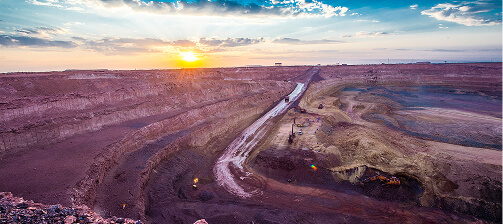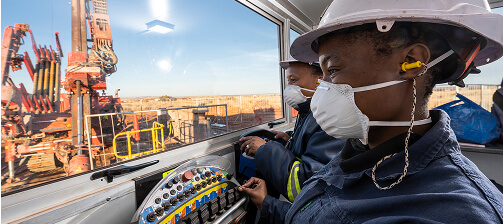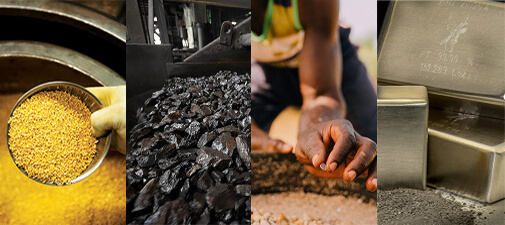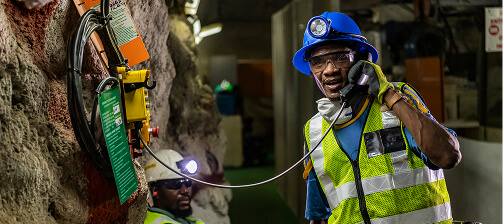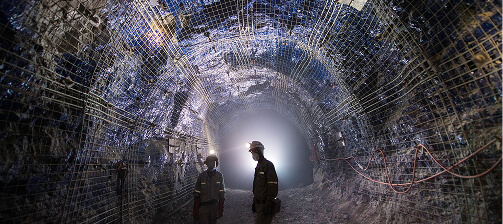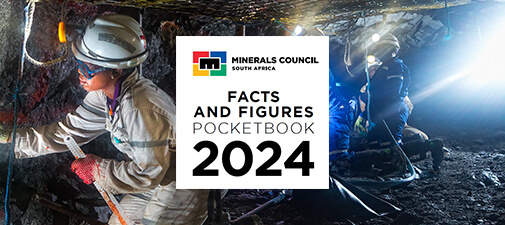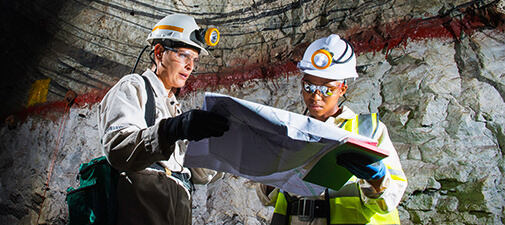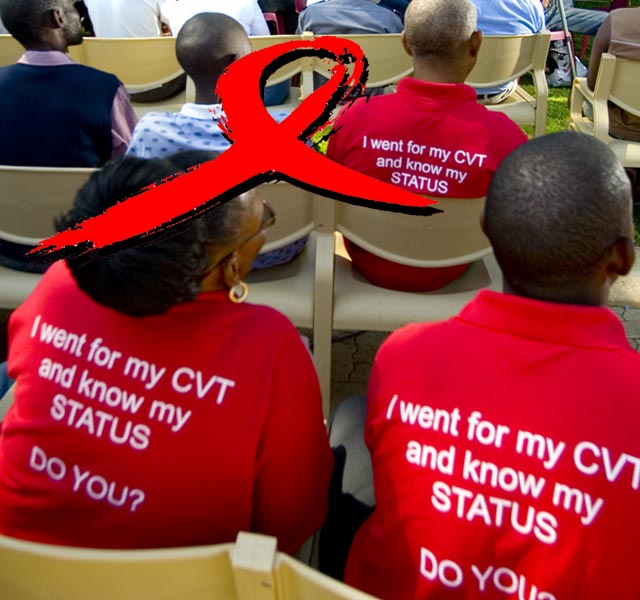Speech made by Dr Thuthula Balfour-Kaipa on behalf of Mr Mike Teke, President, Chamber of Mines, MHSC World Aids Day celebration, Marapong stadium, Lephalale
- Programme Director, Mr. Pieter Van Coller
- Executive Mayor: Lephalale Local Municipality, Cllr Moloko Maeko
- Executive Mayor: Waterberg District Municipality, Cllrs Rosina Mogotlane
- Chief Inspector of Mines: Department of Mineral Resources, Mr. David Msiza
- Executive Head, Strategy &Stakeholder Engagement: Exxaro, Mr. Mzila Mthenjane
- National Health & Safety Secretary: NUM, Mr. Eric Gcilitshana
- Acting Chief Executive Officer: Mine Health and Safety Council (MHSC), Ms Nkhesani Masekoa
- Deputy Chief Inspector of Mines: Department of Mineral Resources, Mr Mthokozisi Zondi
- Our social activist, Ms Dabea Ntlwana
- All dignitaries to this event
- Ladies and gentlemen
Dumelang, sanibona, a good day.
It is a great pleasure and an honour for the Chamber of Mines to be part of this MHSC Celebration of World AIDS Day. On behalf of the President of the Chamber of Mines, Mr Mike Teke, I bring you greetings from our organisation. I also extend his humble apologies that he could not attend this event.
The Chamber of Mines fully supports the celebration of WAD. We therefore join all other sectors of our society that have been celebrating this day, organized under the banner of the South African National AIDS Council led by the Deputy President of our country, Mr Cyril Ramaphosa.
We congratulate the Mine Health and Safety Council for its leadership in ensuring that the mining industry also commemorates this day in a fitting manner, as we see today. We also thank our hosts, the Executive Mayors of Lephalale Local Municipality and Waterberg District municipality, for the warm welcome to this beautiful town. Our gratitude also goes to Exxaro, for all their support in making this day a success.
The Chamber of Mines is part of the Mine Health and Safety Council, which is tasked with improving the health and safety of mineworkers in South Africa. Through the Council, the industry has prioritized HIV and AIDS and TB, and we are proud of the milestones we set for ourselves in 2014 on HIV and TB. The Chamber is leading various initiatives whose objectives are to reach the milestones.
In our environment, we recognize three diseases that we say are a “toxic cocktail”, HIV, TB and silicosis. Both HIV and silicosis massively increase the risk of people contracting TB, which is a major public health problem in our country. Our efforts as the Chamber and the MHSC have thus been focused on reducing these risks.
Through the MOSH Learning Hub, the Chamber has over the past few years placed a lot of effort on adopting leading practices in order to prevent exposures to dust that leads to silicosis and coal worker’s pneumoconiosis. Examples of these leading practices are the Fogger, multi-stage filtration systems, winch covers and continuous dust monitoring. Through the adoption of these leading practises, we have seen reductions in dust levels at our workplaces. This is to be highly commended as prevention is key, prevention is better than cure.
Much has also been achieved in our response to TB and HIV. In June this year, in collaboration with the South African Business Coalition on Health and AIDS (SABCOHA) and the Mine Health and Safety Council (MHSC), the Chamber hosted a parallel session on Sustainable Approaches to HIV/AIDS and TB in the Workplace. Some of the recommendations made at the session were:
- Reduction of discrimination and stigma by having “wellness centers” rather than “HIV and AIDS and TB centres”
- The State addressing structural issues on provision of occupational health services, including making services accessible to working population (after hours services)
- Employers ensuring that work arrangements cater for employees accessing services e.g. awareness campaigns and getting treatment.
- The South African National Aids Council developing sector specific, multistakeholder strategies for engaging the private sector.
These recommendations were brought to the attention of the relevant stakeholders and we are already seeing signs that stakeholders are playing their part in contributing to sustainable approaches to HIV and TB in the workplace. SANAC has developed and adopted a strategy on Private Sector Engagement and we look forward to contributing positively to the strategy.
As I stated before, TB is a major public health challenge in our country, including the mining industry. The Chamber of Mines has a long standing programme to combat TB and reduce TB rates in the industry. In this, we are succeeding, as we have seen massive reductions in TB rates from horrifying rates on the early 2000s of 3000-7000 cases per 100 000 people, to rates now that are almost comparable to the South African TB rates. Even in the gold sector, which had the greatest challenge due to silica dust, great strides have been made and some of our companies are now reporting TB rates of 1 500 cases/100 000 people.
In 2014, the Chamber adopted a position that, in the management and treatment of TB, contractors should be treated the same as employees. This is particularly critical for the coal sector, where high numbers of contractors are employed. We have great lessons to be learnt in how the gold sector has managed contractors and it is through those efforts that they managed to reduce TB rates substantially. The TB germ knows no boundaries, it does not discriminate between permanent employees and contractors. A TB programme that does not include contractors is thus of no value, hence we propagate that contractors are treated the same as employees.
The Chamber is also proud to be participating in the Regional Project on TB in the Mines that will be funded by the Global Fund on AIDS, TB and Malaria to the value of USD 30 million. This will contribute to improving, among others, TB care and prevention and coordinating referrals between countries in the SADC region. Through this regional initiative, we believe that TB will be stopped in its tracks.
Programme Director, ladies and gentlemen, it is a pleasure for me to part of a significant announcement that went out today. That is, the departments of Health and of Mineral Resources, the four primary mining unions - Association of Mineworkers and Construction Union (AMCU), the National Union of Mineworkers (NUM). Solidarity, UASA - and the Chamber of Mines have launched a major tuberculosis (TB) screening campaign in South Africa’s mining sector.
The ‘Masoyise iTB’ initiative will run over three years and forms part of broader national campaign announced by Deputy President Cyril Ramaphosa earlier this year on World TB Day, 24 March– under the theme “Ending South Africa’s TB epidemic: Accelerating our response in Key Populations”.
The companies affiliated to the Chamber of Mines have agreed to play their part in this campaign by ensuring that every employee is screened and tested for TB each year from 2016 to 2018. Most companies already have comprehensive TB screening, testing, treatment and contact tracing in place, which are aligned with World Health Organization (WHO) practices.
This project will focus our efforts in meeting our HIV and TB milestones as the mining industry while at the same time contributing to our national imperatives. Testing was already ramped up by mining companies this year and results from data collected from companies already show high levels of testing of mineworkers for TB and HIV. We encourage everyone in this stadium to go away having been screened for TB and tested for HIV.
Taking the HIV test is scary, but it is also the most empowering thing you can do in taking charge of your health. Knowing your status means you are better able to protect those you love, you are better able to prevent opportunistic infections such as TB, many cancers, and bacterial, viral and fungal infections. All in all, from knowing your HIV status, you lead a better and longer life, and that is a gift you can give to yourself, your family and your country.
I therefore urge you to TAKE THE TEST.
Kealeboga, I thank you for your attention.
Thuthula Balfour-Kapia
![Logo MCSA [logo]](/templates/chamber/images/logo.svg)

